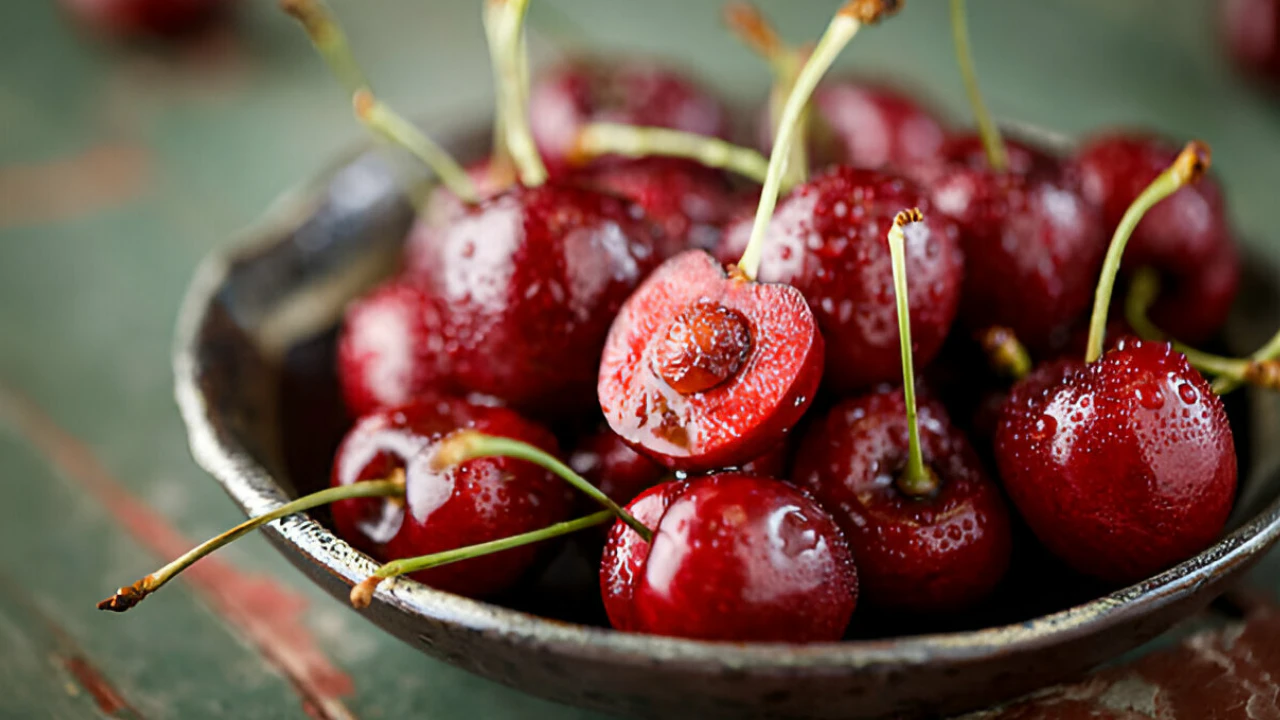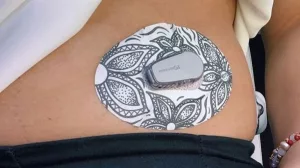Picture this: your friend Addison, who without a doubt observed out she has diabetes, turns to you with a worried appearance and asks, “Can I however devour cherries without sending my blood sugar through the roof?” It’s a first rate question, and honestly, it’s one a whole lot of people with diabetes wrestle with. Cherries are sweet, juicy, and oh-so-tempting—but are they safe for a person managing blood sugar? The short answer isn’t a straight yes or no, so let’s dig into it together. In this newsletter, we’re going to discover whether or not cherries are proper for diabetics, breaking down the blessings, the dangers, and how to experience them without worry. Grab a cup of tea, and let’s chat about it!
Understanding Diabetes and Diet

First things first, allow’s get a manage on what diabetes is all about. At its core, diabetes is a situation wherein your body struggles to keep blood sugar ranges in test. Maybe it doesn’t make enough insulin—like in Type 1 diabetes—or maybe it doesn’t use insulin properly, that is extra commonplace in Type 2. Either manner, insulin’s activity is to commute sugar out of your blood into your cells for electricity. When that process is going haywire, sugar builds up on your blood, and that’s when trouble can begin.
What Exactly is Diabetes?
Here’s the rundown:
- Type 1 Diabetes: Your body doesn’t produce insulin in any respect. It’s usually diagnosed early in existence, and oldsters with Type 1 depend on insulin photographs or pumps to control it.
- Type 2 Diabetes: Your body makes insulin but doesn’t use it successfully. This type often shows up later and can sometimes be managed with way of life modifications, although meds might be wished too.
No depend which type you’re dealing with, retaining blood sugar steady is the name of the sport. And that’s where diet comes in.
Why Diet Matters So Much
If you’ve got diabetes, what you devour isn’t pretty much filling your stomach—it’s approximately retaining your blood sugar from doing a rollercoaster journey. Carbohydrates are the big gamers right here because they break down into sugar in your frame. But not all carbs are the identical. Some hit your bloodstream like a sugar bomb, at the same time as others take their candy time. That’s wherein the Glycemic Index—or GI—comes in accessible. It’s a scale that tells you how fast a food increases your blood sugar. Low-GI foods (think 55 or less) are your friends because they provide you with a gradual, steady electricity launch in preference to a spike. So, are cherries proper for diabetics with regards to this? Let’s discover with the aid of peeking at what’s interior them.
Nutritional Profile of Cherries

Cherries are like little nutritional powerhouses—bursting with taste and good-for-you stuff. But considering we’re speaking diabetes, we need to zoom in on the carbs and sugar, plus some other key nutrients that make cherries special.
What’s in a Cherry?
Here’s a quick look at the stats for a 1-cup serving (about 154 grams):
| Type | Calories | Carbs | Sugar | Fiber |
|---|---|---|---|---|
| Sweet Cherries | 97 | 25g | 20g | 3g |
| Tart Cherries | 77 | 19g | 13g | 2.5g |
Right off the bat, you can see tart cherries have less sugar and fewer carbs than their sweet cousins. That’s a clue they might be a bit friendlier for blood sugar, but there’s more to the story.
Fiber: The Unsung Hero
Both types of cherries bring some fiber to the table—3 grams for sweet, 2.5 for tart. Fiber’s exquisite because it slows down how fast your body absorbs sugar. It’s like a natural brake pedal on your blood sugar, that is precisely what you want in case you’re dealing with diabetes.
Antioxidants and More
Cherries also are loaded with antioxidants, like anthocyanins and polyphenols. These supply cherries their gorgeous red color and percent a fitness punch:
- Less Inflammation: Diabetes can stir up inflammation, which isn’t great for your body. Antioxidants help calm that down.
- Heart Support: With diabetes raising your heart disease risk, cherries’ antioxidants might help keep your ticker in better shape.
- Vitamins Galore: You’ve got vitamin C for immunity, potassium for blood pressure, and even a little melatonin in tart cherries for better sleep.
So, cherries aren’t just tasty—they’ve got some serious benefits. But how do they play with your blood sugar? Let’s dive into that next.
Impact on Blood Sugar Levels

Okay, right here’s the million-dollar query for absolutely everyone with diabetes: how do cherries affect my blood sugar? To solution that, we want to talk about the Glycemic Index and what science says.
The Lowdown on GI
Cherries have a low to moderate GI—sweet cherries clock in around 25-30, and tart cherries are even lower. That’s a green light for diabetics because low-GI foods don’t send your blood sugar soaring. Compare that to something like watermelon (GI of 72) or even grapes (GI of 46), and cherries start looking pretty good.
What Research Tells Us
Some studies hint that cherries might do more than just play nice with your blood sugar. A study in the Journal of Agricultural and Food Chemistry found that anthocyanins in cherries could boost insulin sensitivity in animals. That means your body might use insulin better, keeping blood sugar in check. Pretty cool, right? But here’s the catch—we need more human studies to say for sure.
Even with a low GI, though, you can’t go wild. A cup of sweet cherries has 20 grams of sugar—about 5 teaspoons. Eat too many, and you could still see a bump in your levels. Moderation’s the key.
Recommended Consumption for Diabetics
So, are cherries desirable for diabetics in terms of how tons you could consume? Let’s figure out what “safe” looks like.
How Much is Okay?
A good starting point is 1 cup of fresh cherries—think 15-20 cherries. For sweet ones, that’s 25 grams of carbs; for tart, it’s 19 grams. In diabetes lingo, that’s about 2 carb exchanges (where 1 exchange = 15 grams). Most meal plans suggest 3-4 exchanges per meal, so cherries can fit if you plan around them.
Fresh is Best
Stick to fresh cherries whenever you can. Canned ones often have added sugar, and dried cherries pack a carb punch in a tiny serving—2 tablespoons can match a whole cup of fresh! Fresh keeps it simple and safe.
Test and Learn
Here’s a pro tip: check your blood sugar before and after eating cherries. Everyone’s different, and this little experiment can show you how your body reacts. Maybe a half-cup works better for you—listen to your numbers.
Still unsure? Chat with your doctor or dietitian. They can tailor this to you.
Potential Benefits and Risks
Let’s weigh the good and the not-so-good when it comes to cherries and diabetes.
The Upsides
- Antioxidant Boost: Those anthocyanins combat infection and might lower your coronary heart ailment risk—a big deal for diabetics.
- Fiber Perks: Slows sugar absorption and keeps your gut happy.
- Insulin Help: Early research suggests cherries might make insulin work better, though we’re still waiting for the full scoop.
The Downsides
- Sugar Sneak: Too many cherries, and that natural sugar adds up fast.
- Med Mix-Ups: If you’re on blood thinners, cherries’ vitamin K might interfere—check with your doc.
Keeping It Safe
Enjoy cherries worry-free with these tricks:
- Cap it at 1 cup.
- Pair them with nuts or yogurt to balance things out.
- Track your blood sugar to stay in control.
Tips for Incorporating Cherries into a Diabetic Diet
Ready to add cherries to your life? Here’s how to do it deliciously and smartly.
Meal Magic
- Morning Boost: Add some cherries to your oatmeal or yogurt.
- Lunch Twist: Mix them into a spinach salad with nuts and a light dressing.
- Dinner Flair: Top grilled chook with a cherry salsa—fancy yet easy!
Snack Smarts
- Frozen Bliss: Freeze cherries for a cool treat.
- Cheese Combo: Pair with a slice of cheese for a satisfying bite.
- Smoothie Time: Blend with greens and protein powder—yum!
Quick Recipe: Cherry-Walnut Salad
Try this:
- 1 cup pitted cherries, halved
- 2 cups spinach
- 1/4 cup walnuts
- 1 tbsp olive oil
- 1 tsp balsamic vinegar
- Pinch of salt and pepper
Toss it all together and dig in—sweet, crunchy, and good for you!
Year-Round Cherries
Summer’s cherry season, but frozen ones work anytime. Just skip the added-sugar versions.
Conclusion
So, are cherries good for diabetics? Yep, they can be—when you play it smart. Fresh cherries, especially tart ones, bring fiber, antioxidants, and a low GI to the table, making them a solid choice in moderation. But overdo it, and the sugar can sneak up on you. Stick to a cup, watch your levels, and talk to your doctor for the green light.
Diabetes doesn’t imply giving up the entirety you love—it’s approximately locating stability. Cherries can brighten your plate and your day if you manage them proper. Got a cherry story or question? Drop it below—I’d love to hear from you! For more diabetes-friendly ideas, swing by the HealthEH’s diabetes articles. Here’s to tasty, healthy eating!























Leave a Reply
You must be logged in to post a comment.